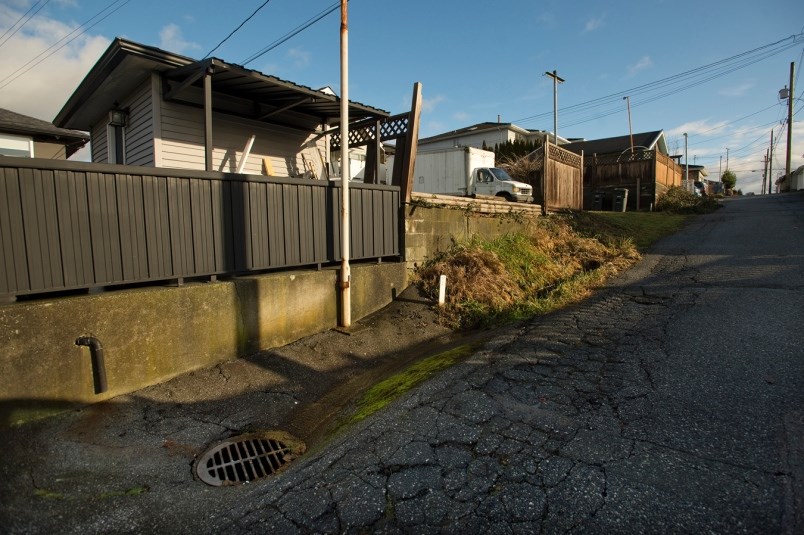A Burnaby homeowner wants the city to change an “unfair” bylaw that could cost him more than $30,000.
Dave Hayre plans to tear down and replace his home on Napier Street in the Willingdon Heights neighbourhood. He said he purchased the property in 2006 with the intention to redevelop.
But, Hayre said, he didn’t expect the city would require him to cover the cost of installing new storm sewer lines in the lane behind his property. The city told him he needs to pay $33,277 to cover the work before it issues a building permit for his new home.
“I don't have that kind of money to just throw around,” Hayre said. “It’s very unfair for anybody to just come up with a lump sum like that.”
Burnaby Mayor Mike Hurley defended the policy, saying it ensures the municipality can continue to separate its storm and sanitary sewer lines throughout the city.
Burnaby has spent millions in recent years to separate the two types of sewage that can combine and overflow into local waterways on rainy days. But many private properties still have combined lines that also need to be separated.
That’s why the city requires property owners to separate their sewer lines when they redevelop their property.
Hayre said he doesn’t think he should have to pay for the city’s work building a new storm drain line behind his lot.
“I think it's really unfair that they're forcing people to pay for infrastructure is not even on their own property,” he said.
Hayre also noted that most homeowners already live in areas with separated sewer lines and therefore do not have to pay the same costs if they redevelop.
But Hurley said those costs were paid during initial construction and have been passed on as owners sell their properties.
“It’s not that he’s being singled out; it’s just he’s in an older area where there’s no separation,” Hurley said.
Read more from the




